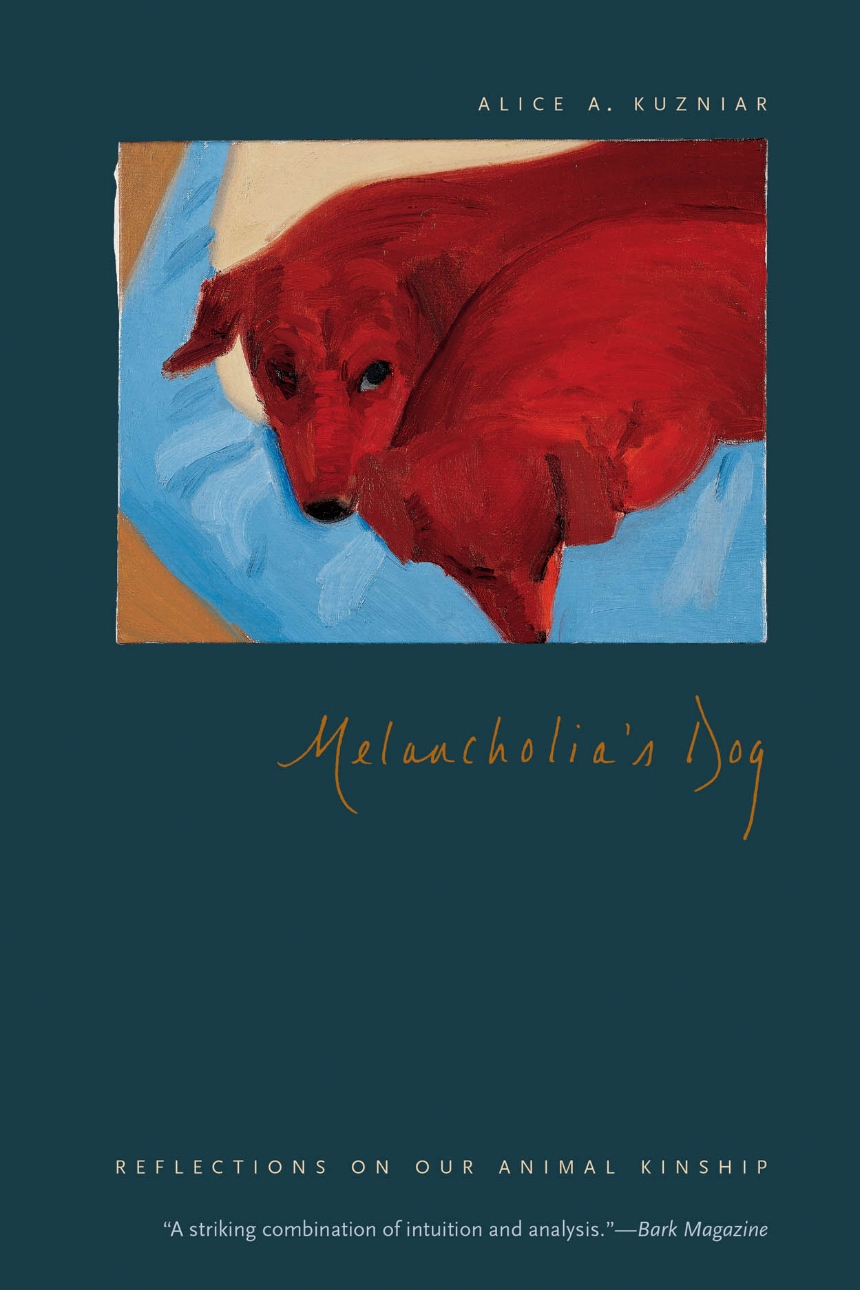Melancholia’s Dog
Reflections on Our Animal Kinship
Bred to provide human companionship, dogs eclipse all other species when it comes to reading the body language of people. Dog owners hunger for a complete rapport with their pets; in the dog the fantasy of empathetic resonance finds its ideal. But cross-species communication is never easy. Dog love can be a precious but melancholy thing.
An attempt to understand human attachment to the canis familiaris in terms of reciprocity and empathy, Melancholia’sDog tackles such difficult concepts as intimacy and kinship with dogs, the shame associated with identification with their suffering, and the reasons for the profound mourning over their deaths. In addition to philosophy and psychoanalysis, Alice A. Kuzniar turns to the insights and images offered by the literary and visual arts—the short stories of Ivan Turgenev and Franz Kafka, the novels of J. M. Coetzee and Rebecca Brown, the photography of Sally Mann and William Wegman, and the artwork of David Hockney and Sue Coe. Without falling into sentimentality or anthropomorphization, Kuzniar honors and learns from our canine companions, above all attending to the silences and sadness brought on by the effort to represent the dog as perfectly and faithfully as it is said to love.
216 pages | 13 halftones | 6 x 9 | © 2006
Art: Art--General Studies
Biological Sciences: Natural History
Literature and Literary Criticism: General Criticism and Critical Theory
